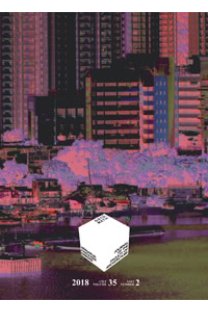Selective demolition of redundant and earthquake damaged buildings in Turkey
Türkiye’de atıl veya depremde zarar gören binaların kismi sökümü ve yıkımı
___
- BLENGNINI, G.A. (2009) Life cycle of buildings, demolition and recycling potential: A case study in Turin, Italy, Building and Environment, 44 (2); 319-30.
- CHINI, A.R. (2005) Deconstruction and materials reuse - an international overview, CIB Publication No. 300, University of Florida, Gainesville. CHA (Cihan Haber Ajansı), Cihan News Agency webpage www.cha.com. tr, accessed July 2011.
- DHA (Doğan Haber Ajansı), Doğan News Agency webpage www.dha. com.tr, accessed July 2011.
- ELIAS ÖZKAN, S.T. (2001) Recycling Rubble into Aggregates: A Model for Local Governments. Habitat International, 25 (4); 493-502.
- ELIAS ÖZKAN, S.T. (2002) An overview of demolition, recovery, reuse and recycling practices in Turkey, Design for Deconstruction and Materials Reuse, ed. A.R.Chini and F.Schultmann, CIB Publication 272, Karlsruhe; 128-38.
- ELIAS ÖZKAN, S.T. (2003) Deconstruction of earthquake damaged buildings in Turkey, Deconstruction and Materials Reuse – Proceedings of 11th Rinker International Conference on Deconstruction and Materials Reuse, Gainesville, ed. A.R.Chini, CIB Publication No. 287, Rotterdam; 138-50.
- ELIAS ÖZKAN, S.T. (2005) The state of deconstruction in Turkey , Deconstruction and Materials Reuse - An International Overview, ed. A.R.Chini, CIB Publication No. 300, University of Florida, Gainesville.
- ELIAS ÖZKAN, S.T. and DÜZGÜNEŞ, A. (2002) Recycling of construction material and the reuse of building components: An overview, in the proceedings of the CIB-W107 international conference on Creating a sustainable construction industry in developing countries, CSIR, Pretoria; 265-76.
- Kibert,C.J., Chini, A. R. and Languell, J. L. (2000) Implementing deconstruction in the United States, in J. Kibert and A. R. Chini (eds) Overview of Deconstruction in Selected Countries, CIB Publication 252, Florida.
- Ministry of Development and Housing (2000) Technical Contract for Demolition and Dismantling, Ankara. www.bayindirlik.gov.tr (Yıkma ve Sökme Genel Teknik Şartnamesi, in Turkish).
- Ministry of Environment and Forestry (2004) Regulations on Excavation, Construction and Demolition Waste Control, Ankara, www.cevreorman. gov.tr.
- Ministry of Environment and Forestry (2008) Waste management action plan: 2008 - 2012 (Atık Yönetimi Eylem Planı 2008-2012 – in Turkish), Ankara. www.cevreorman.gov.tr.
- ÖZTÜRK, M. (2005) Regulations for construction and demolition waste management. Ministry of Environment and Forestry, Ankara. (Insaat /Yikinti Atiklari Yonetimi - in Turkish). www.cevreorman.gov.tr
- TUIK (2008) Annual Solid Waste Statistics, Turkish Statistics Institute. www. tuik.gov.tr.
- ISSN: 0258-5316
- Yayın Aralığı: Yıllık
- Başlangıç: 2018
- Yayıncı: -
Climate change and cities: A review on the impacts and policy responses
Belma YÜKSEL, DENİZ HASIRCI İNCEOĞLU
Classifications for planimetric efficiency of nursing unit floors
ZEHRA TUĞÇE KAZANASMAZ, GÖKMEN TAYFUR
Ankara’daki kentsel büyüme ve saçaklanmanın verimli tarım topraklarının amaç dışı kullanımına etkisi
Dinçer SEZGİN, ÇİĞDEM VAROL ÖZDEN
Marmara köşkü: Atatürk için modern çiftlik evi
Selective demolition of redundant and earthquake damaged buildings in Turkey
Sanayi kümelerinde ağlarin mekansal örüntüsü: İstanbul kuyumculuk sektörü üretim ağları
Armatlı Bilge KÖROĞLU, TANYEL ÖZELÇİ ECERAL, ÇİĞDEM VAROL ÖZDEN
Creative design exploration by parametric generative systems in architecture
“Taşı taş gibi, ahşabı ahşap gibi göstermek”: Frank lloyd wright’ın malzeme teorisi
Eflatun’un “kurbağa”sı Sinope’den Sinop’a: Kaynaklara göre sinop kentinin fiziksel gelişimi
